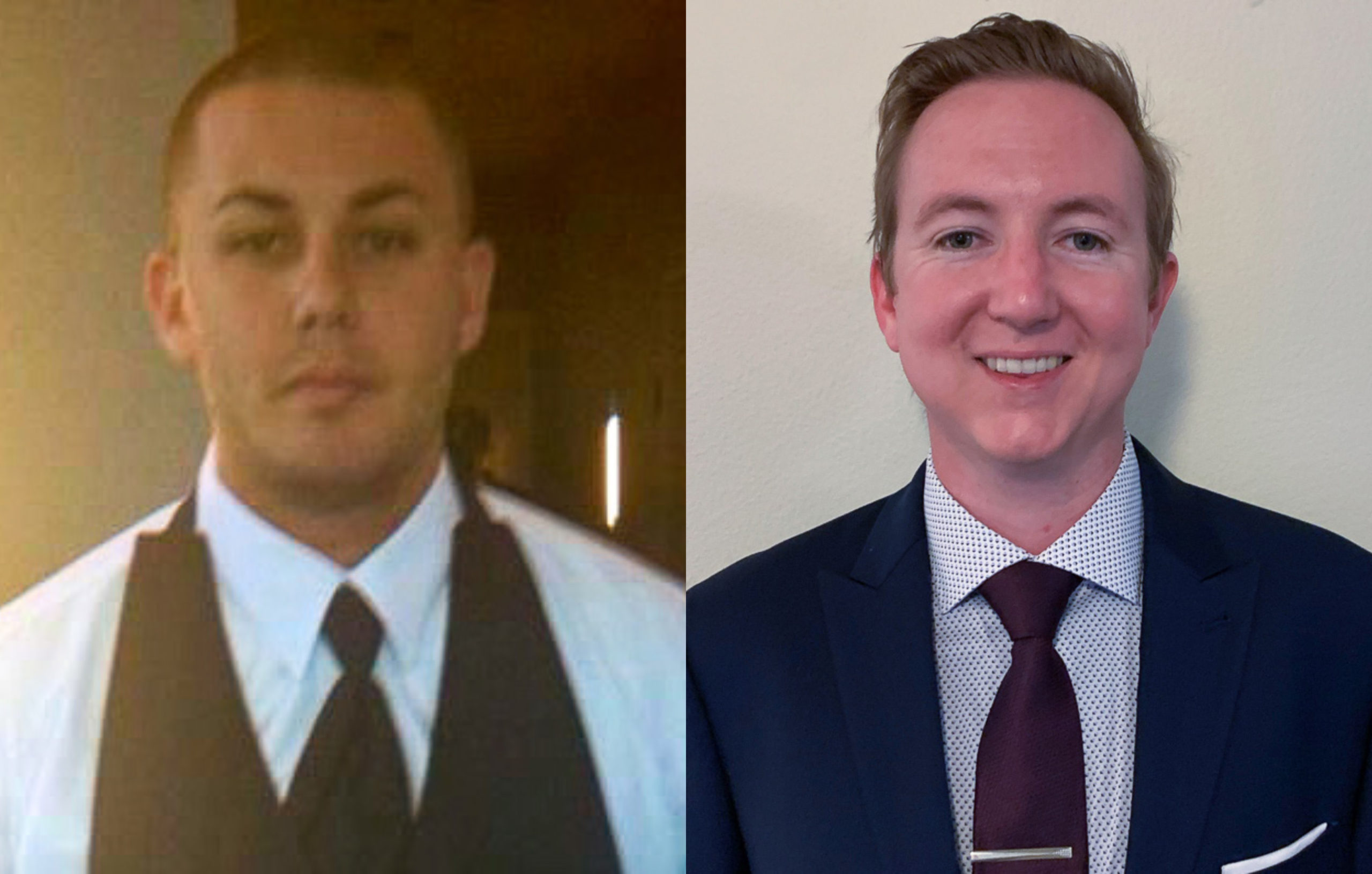Pictured Above: Joshua Dale (left) found that his service in the Army helped him handle the stress of college coursework better than some of his peers. Steven Giannone found the transition from military to college difficult without the close-knit sense of community he had in the Army.
Courtesy of Joshua Dale and Steven Giannone
By Gregory Johnson
Military and college cultures tend to mix like water and oil. Strict and structured military life is at odds with the freedom and openness available in college life.
Veterans transitioning from the military and into a college environment are likely to experience some form of culture shock for that reason.
According to the U.S. Department of Veterans Affairs, veterans have traits that are likely to both help and hinder them in college. The VA claims they are more likely to better prepare for classes, but also find it more difficult to build social connections.
Needless to say, the experiences had by veterans are vastly different than that of other students, and with those experiences comes a different perspective and approach to college.
After serving 10 years in the Army, knee and shoulder surgery and a traumatic brain injury, Joshua Dale was medically discharged in 2018.
Dale, who enlisted at 18, had only ever known military life. Toward the end of his time in the military, he began to prepare for his transition by taking classes and receiving an associates degree in applied science. But once he actually began taking classes at the University of South Florida, he also began noticing the differences from his former life.
“Everything in the Army, as you know, is really, really, really structured,” Dale said. “While here, all the chains are off. Everything is on you.”
Some of the other differences Dale saw were in how he and his classmates handled the coursework.
He found that his ability to handle stress was far above the majority of his classmates.
He said as someone who was unprepared to leave the military, has a wife and child, is in the midst of building a house, works for a non-profit, participates in the Student Supreme Court and takes five classes, he couldn’t understand why his classmates were stressed about paper deadlines.
“I don’t think you know what stress looks like,” Dale said, referring to his classmates.
Since 2012, job search engine CareerCast.com has consistently ranked enlisted military personnel as the most stressful job in the country.
Dale said that not only was he able to better handle stress, but he also knew the value of responsibility. He had a clear picture of “what is right and wrong” when it came to how he spent his time. That and more, he said, led to his success in college.
Veteran experiences with college, just like in the military, aren’t identical though.
Steven Giannone spent three semesters at the University of North Georgia before entering the military, but rather than making his schooling a priority, he focused on partying. At the beginning of his final semester, he enlisted in the Army. At the end of the semester, he was kicked out of the university for poor grades.
“My heart and mind wasn’t there because my folks wanted me to go there,” Giannone said. “I wanted to enlist straight out of high school.”
After four years, Giannone, another USF alumni, left active duty service for very different reasons than Dale.
Giannone said that because of budget cuts by the government he saw fellow soldiers being pushed out before retirement, and he didn’t want to be among them. With that in mind, he enrolled in college for the second time to pursue another path. But he did so with an entirely new mindset.
“If we can go days on end with no sleep, or limited sleep, if we can jump out of planes, if we can do all the things the military was expecting us to do – I think I could fart out some college papers,” Giannone said.
But unlike Dale, Giannone found college to be extremely stressful.
He was saddled with many of the same stressors as Dale, such as working full-time, his marriage and their first home buying experience. But Giannone never considered himself to be a great student, and said he had a severe fear of failure. He also had a difficult time adjusting to the student atmosphere.
Giannone said he saw many of his classmates as a reflection of his younger self, a person he no longer identified with. He felt that the atmosphere was far too sensitive and found himself unable to connect with his classmates. He said that the sense of community he had known in the Army was nowhere to be found.
“I’ve been trying to find a way, to like, fill that void of having that close-knit group of people in the civilian world now,” Giannone said. “And I can’t find it.”
Giannone said that for all the ways the military helped prepare him, it had also made him callous and jaded in other ways. He had a difficult time listening to opinions expressed by his classmates on topics he had intimate experience with. He said there were times his responses would clash with the views of his classmates.
Toward the end of his college career, Giannone was happy to move his classwork entirely online.
After graduation in 2018, he found his way back to the community he valued and missed, working in intelligence as an active duty reservist. And he now works in the same field as a civilian, with many coworkers with similar experiences.
While veterans share many experiences from their time in service that affects their perception of college life, it does not mean that they will have the same experience in college. Each will face the challenges of academia in their own way. But for all, the lifestyle they were accustomed to ended.
“You kind of get reintroduced to the world again,” Dale said.



